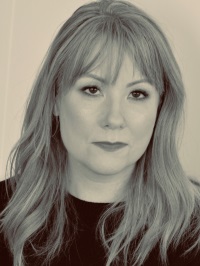Recent events have plunged us all into a brave new world. We are forced to confront a new normal in how we work and how we live.
We have heard about the effects of digitisation on professional life for some time. And changes have been slowly encroaching on how we do things for the last twenty years. It hasn’t been a jarring overnight epiphany where we wake up in some new digital reality. For many the blending of ‘business as usual’ enhanced by some additional digital tools such as email, smart phones and video conferencing, may have made it seem that any discussion of the future of law is very much for other people and not for them.
However, one thing that the COVID-19 crisis has shown is just how different the future might be if we need to work in different ways on a large scale and how unprepared in reality many organisations have been. It’s not just being unprepared in terms of actually technology but also in mind set.
What recent events have brought to the forefront is the most significant challenge in the future of the legal profession is how we blend the human and the digital to best effect.
Blending human talent and technology
Research and writing on the future of business and leadership in the digital age shows us that it’s actually our human qualities, like empathy, that will be the ones we need to focus on and learn how to apply in the most effective and appropriate ways. But that doesn’t mean we can ignore processes and technology; ideally the most effective delivery of legal services in the future will be the best fusion of human ability and new tools.
Tension between our human lived experience and new ways of understanding the world have often been at the heart of science fiction. The title of DWF's new GC series takes its name from Aldous Huxley’s Brave New World. The central paradox in the book is the tension between the more mechanistic, process driven machines versus the basic human need to be individualistic, creative and express oneself.
DWF are rethinking the title of Huxley’s book in their new GC series. What’s needed to imagine the future of law is bravery and an ability to embrace the new. But to do this we cannot have a tension between on the one side, the human and the creative and on the other processes and technology; we need to bring both together. We need to be creative, to bring new ideas in and make connections from outside of traditional legal practice. What we will also need is the expertise and insights from a wide range of subject matter experts, not just lawyers.
Getting to the purpose of the new
In practical terms what we need to start with why; why we need to do things differently, followed by how and what we need, step by step, to make that happen. Popular phrases like ‘innovation strategy’ and ‘digital transformation’ can stymy many organisations or teams because they don’t know what that means for them specifically in practice. What we also need to be prepared for as we embrace change is that change itself may likely change. What innovators from the tech sector know is that you need to be able to pivot and learn from what goes wrong. It’s a lesson many lawyers struggle with due to the cult of perfectionism instilled via training and much professional experience.
The challenge with these new ways of working is that we may feel anxious; as if we need to rush to shiny new solutions. There can be a definite fear of missing out regarding innovation in law, where all of us may feel compelled to jump into something which seems new and innovative. But if it’s not really doing the job we need it to, then it will ultimately feel unsatisfying. It may then cause ourselves and/or our leadership to dismiss any change as pointless.
As we look to understand our purpose for starting our journey into this brave new world of the future of law, a key element is understanding the range of issues we’re finding a solution for. As the Harvard Business School Professor Theodore Levitt famously wrote, people want a quarter inch hole not a quarter inch drill. But ultimately what people want is the hole to hang the picture hook, to then hang the family photo in the wall. So the actual ‘job to be done’ is satisfying an emotional need to remind us of a particular memory of our family; that’s an emotional human need. And connecting the purpose of change to the emotional part of our brains will always have more success.
How we understand and guide change
This emotional aspect of change can often be missing when we discuss the future of work and the future of law. It’s not just the theory of managing change per se, there are very human emotions which affect experiences and efficacy of new developments. For example there can be the ecstasy of realising what’s possible and having our sense of possibility expanded. Similarly in other instances we can feel frustrated with having to learn new ways of doing what has become second nature. What’s needed to guide us are leaders who understand the range of challenges we face; and in driving change in the profession we can all become leaders, whether that’s our official remit or not.
Register your interest in the Brave New Law programme
(From our preference centre form please select 'Brave New Law' under 'Other')
Catherine McGregor is an experienced thinker on the legal market and particularly on the role of the general counsel, the future of the legal profession and inclusion in law.

Find out more about Catherine's work >













